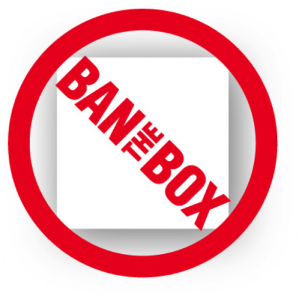Employers have a responsibility to make sure the person they hire for a position is a right fit for the job. Background checks are one important part of this process, as they help to determine whether a particular industry or position is suitable for an applicant with a certain criminal history. However, it is vital that criminal records are used properly and not discriminatorily.[i] They should not be used as a screening tool to automatically dismiss all applicants with felony convictions. Rather, they should be used in a discerning manner, causing an employer to examine whether a person’s criminal history has any relation to the position sought. If there is a strong correlation, then there may be reasonable grounds to remove the applicant from consideration. If not, the applicant deserves the same chance as any person to demonstrate his or her qualifications for a job.
What does it mean to “ban the box”?
“Banning the box” refers to removing the question about a person’s criminal history from the initial job application and postponing the question to a later point in the hiring process. This policy increases the likelihood that a person with a criminal record will get hired by giving the applicant an opportunity to demonstrate his or her qualifications for a job without automatically being screened from the hiring process.
Postponing the question of an applicant’s criminal history to a later point in the hiring process allows applicants to explain their criminal record to an employer in person. This face-to-face interaction is essential to increasing an ex-offender’s chance of becoming employed. It provides an ex-offender the opportunity to be candid about his or her past and to explain how overcoming setbacks have fashioned him or her into a qualified candidate for the position. This conversation gives an employer the chance to listen to the ex-offender’s story, relate to him or her as a person, and get a better grasp of the person’s character and strengths. By giving ex-offenders the opportunity to represent themselves in the best light and to prove how qualified they are for a position, an employer may find his or her best candidate for the job.
Who is “banning the box”?
States, counties, and cities across the nation are establishing fair hiring polices for ex-offenders by “banning the box” on applications for public employment.
As of September 2014, thirty states have a local or state-level “ban the box” fair hiring policy for public employers. Among these states, thirteen have enacted statewide fair hiring laws, and six have also extended the fair chance policy to government contractors or private employers.[ii]
Nationwide, almost seventy cities and counties – including Atlanta and Fulton County – have taken steps to remove barriers to employment for qualified workers with records, and twenty of these cities and counties have extended “ban the box” policies to government contractors or private employers.[iii]
Why should Georgia “ban the box”?
Although the Governor spoke of “banning the box” earlier this year, he has not yet issued an executive order for state employers to do so. Taking this decisive step will be important for continuing the reforms his office has worked so hard to carry out this year to improve outcomes for returning citizens.
By following the precedent set by Atlanta and Fulton County and officially embracing “ban the box” policies for state employers, the state can help more people with criminal records get good jobs for which they qualify. This, in turn, will improve their chance of successfully reintegrating into society, decrease their chance of recidivating, enable them to benefit employers, and allow them to contribute to the economy of the state.
Embracing this policy at the state level will also encourage county, city, and even private employers across Georgia to follow suit.
For proof that “ban the box” policies help people with criminal records get good jobs and benefit employers, check out Durham, NC’s success story by clicking here.
This post was adapted from Georgia Center for Opportunity’s December 2013 report titled Increasing Employment Opportunities for Ex-Offenders.
Image credit: GT L&E Blog (featured image) and Accurate Background, Inc.
[i] U.S. Equal Employment Opportunity Commission, “Consideration of Arrest and Conviction Records in Employment Decisions Under Title VII of the Civil Rights Act of 1964,” Office of Legal Counsel, April 25, 2012, accessed November 29, 2013, https://www.eeoc.gov/laws/guidance/arrest_conviction.cfm.
[ii] National Employment Law Project, Ban the Box: U.S. Cities, Counties, and States Adopt Fair Hiring Policies to Reduce Unfair Barriers to Employment of People with Criminal Records, September 2014, ii, 3, https://www.nelp.org/page/-/SCLP/Ban-the-Box.Current.pdf?nocdn=1.
[iii] Ibid., 1-2.

Trackbacks/Pingbacks